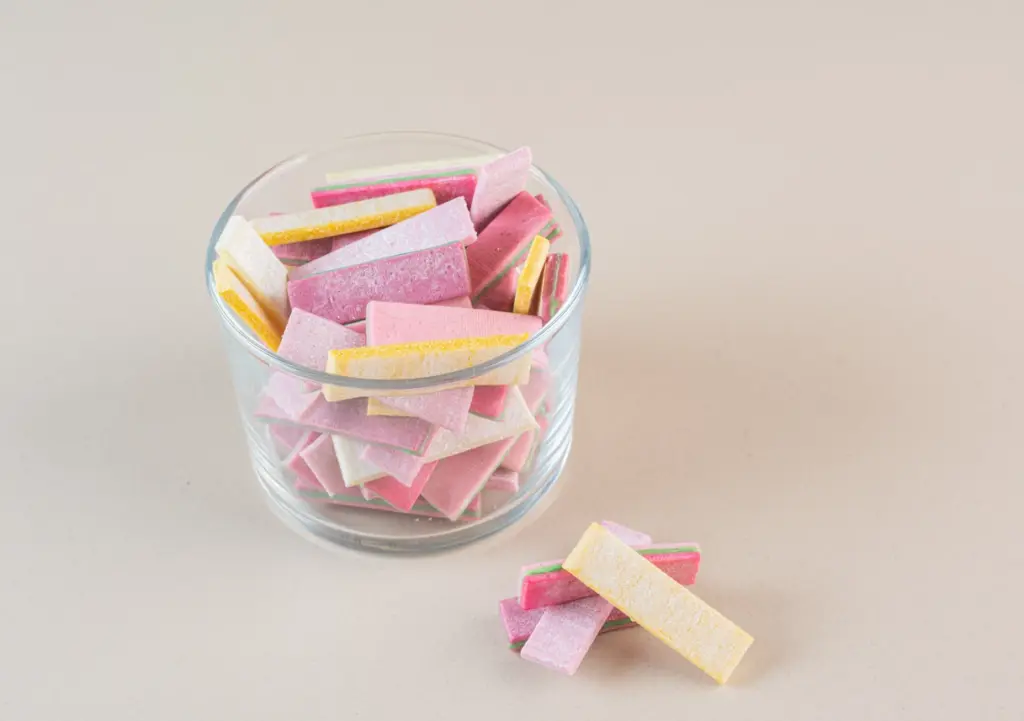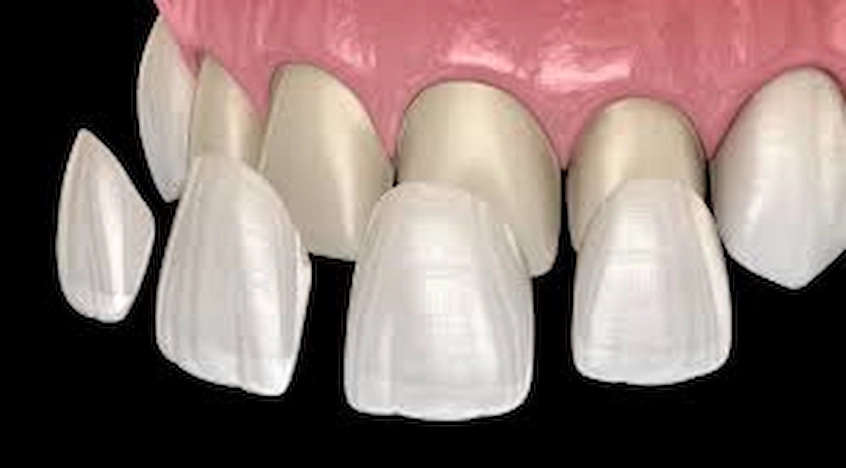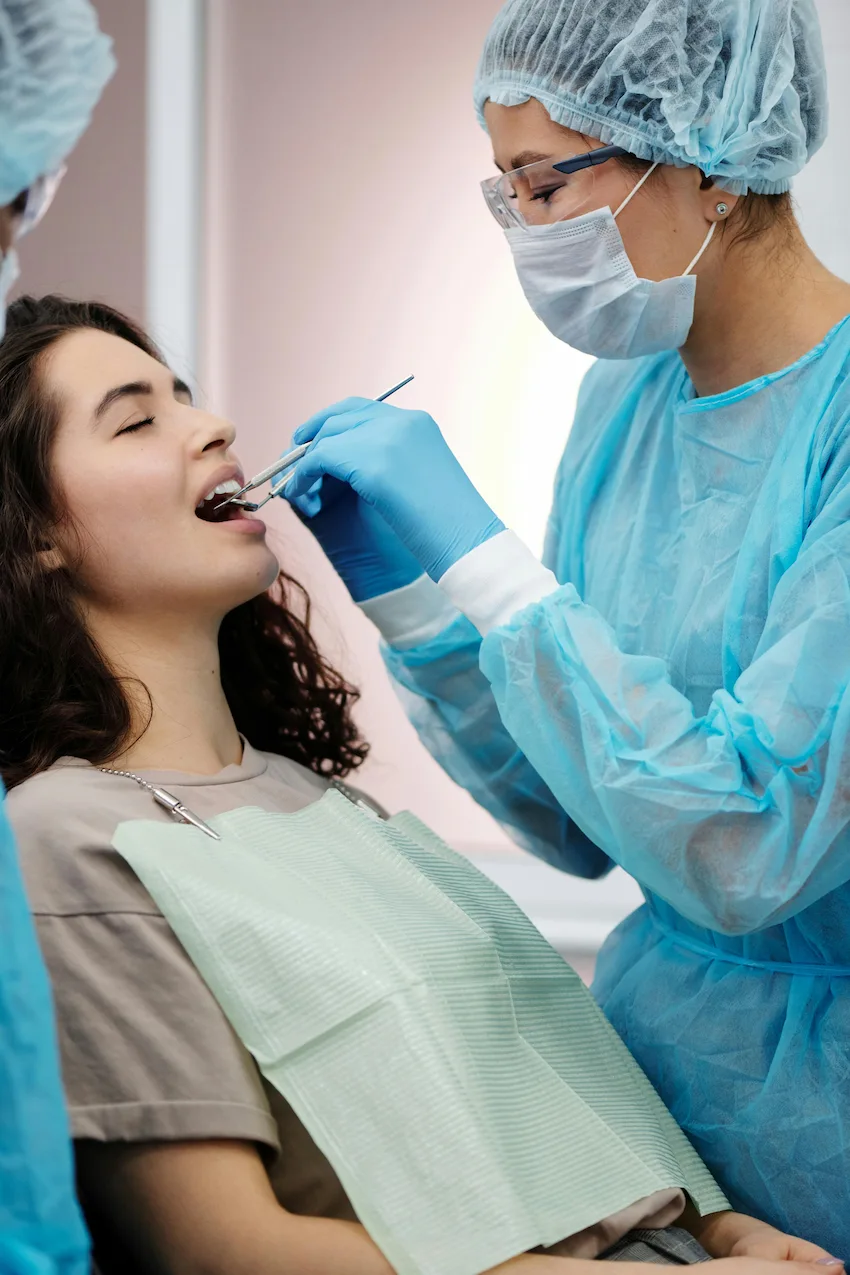Does Chewing Gum Harm Your Teeth?

Chomping on chewing gum has become an ordinary habit for people who take it to ensure a fresh breath, to deal with anxiety, or simply to keep their dental makeup engaged. However, there are a lot of concerned individuals who cannot avoid asking the critical question Can chewing gum ruin your dental health? This straightforward answer is generic and varies from person to person. Depending on the kind of gum and the frequency of consumption, this act of chewing can be viewed as useful or detrimental to your dental health.
Let’s get to know the facts, shove aside the fallacies, and sift the precise information about chewing gum and its relationship with our teeth and general dental health.
The Positive Side: The Goodness and Advantages of Chewing Gum
When it comes to sugar-free gum, there are some surprising dental benefits backed by science. If you want to chew gum without worrying about if it will have negative effects on your dental health, you can choose the sugar-free type and enjoy the positive impact it will have on your teeth.
1. Increases Saliva Production
When you chew, your saliva also gets produced to give your mouth the needed hydration to maintain a healthy oral environment. Saliva serves the following purposes:
- Strains the acid levels in the mouth and restores the preferred alkaline environment to maintain teeth health.
- Flushing food residues that can cause tooth decay helps.
- Strengthening of the tooth enamel by contributing minerals such as calcium and phosphate that reverse the early stages of tooth decay.
That’s why dentists recommend sugar-free gum to reduce dry mouth and help to combat acid attacks that occur after some time, especially after meals.
2. Helps Prevent Tooth Decay
It is bizarre but true, xylitol, a natural sweetener found in some sugarless chewing gums, actually helps to reduce the rate of acid production by this kind of bacteria called Streptococcus mutans. This particular bacterium is most abundant in the mouth, producing acids that lead to tooth decay. Thus, xylitol gum can indeed:
- Inhibit the growth of bacteria, particularly Streptococcus mutans, which are among the high common European threats causing cavities
- Reduce the amount of plaque from the teeth generated as a defense mechanism by some bacteria
- Lower the chances of acquiring tooth decay by inhibiting the growth of the above-mentioned bacteria
If you take xylitol chewing gum after meals, you are also reducing the acidity of your teeth and protecting them during the hours when they are most susceptible.
The Negative Side: When Gum Can Be Detrimental to Your Teeth

Not all gums are equally productive and beneficial overall. In some instances, chomping on chewing gum can be terrible for your dental health. There are various other possible adverse effects that should be considered before you pop any type of gum in your mouth to chew.
1. Sugary Gum is a Cavity Culprit
Traditional chewing gum that is loaded with sugar can be likened to candies. The chewing gum that is loaded with sugar is just as dangerous as the candies because the sugar that is present in this chewing gum acts as food for the harmful bacteria that are always present in the mouth to cause cavities. The harmful bacteria present in the mouth feed on the sugar that is still present in the chewing gum. This means that the bacteria produce acid, and this acid is, in turn, the one that erodes the enamel on the outer layer of the teeth, thus leading to worn-out and vulnerable teeth. When this process happens time and again, the damage to the teeth may be extensive, and the risk of developing cavities and decay increases exponentially. The sugar in the gum leads to tooth decay since it converts to acid and erodes the enamel in the tooth.
- Sugar feeds harmful bacteria in your mouth
- This leads to acid production, which erodes the enamel
- Over time, this increases your risk of cavities and decay
Chewing sugar-containing gum more often after brushing and flossing can easily undo the good work of cleaning done on the teeth. In order to keep your teeth free of cavities and decay, you should steer clear of sugary foods and gum that are sugary in the first place. Sugar is not the only enemy to your pearly whites, but certain habits can make it worse.
2. Jaw Stress and TMJ Disorders
Even the contrarily decorated sugar-free chewing gum can still do damage to your mouth if it is overused. This is because the excessive use of chewing gum can result in mild discomfort, such as:
- Jaw muscle fatigue
- Headaches
- TMJ (temporomandibular joint) pain, especially in those with pre-existing conditions
If you often experience jaw discomfort or headaches around the jaw area, it is highly recommended to cut down on the amount of gum chewing you are doing. The most advisable thing to do in case of pain in the jaw joint areas is to reduce the intake of gum or even seek an appointment with your dentist. It is still uncharted territory to use chewing gum as a headache remedy or treatment entirely. Nevertheless, it can be concluded that for its potential aid, some moderation and knowledge of the dynamics are required.
Tips for Chewing Gum the Right Way
Despite its tooth-friendly rates, gum lovers need to adopt good chewing habits. So that gum enthusiasts can enjoy gum while still maintaining the dental hygiene of their teeth, a few rules need to be followed.
- Always choose sugar-free gum, especially those with xylitol
- Limit gum to 10–15 minutes after meals to boost saliva without overworking your jaw
- Avoid chewing gum before bed or when you’re already clenching your teeth
- Stay away from gum if you have braces or other orthodontic appliances unless your orthodontist approves
- Don’t substitute gum for brushing—it’s a helpful tool, not a replacement
What Dentists Say About Chewing Gum
Most dental professionals agree that most types of sugar-free gum are safe for your teeth and even beneficial in moderation. Nevertheless, they recommend not to :
- Use sugary gums
- Overdo with chewing i.e., prolonged chewing sessions
- Do not use gum as a stress-relief tool, especially if it contributes to tension headaches or causes jaw strain
If you want a personal consultation, make a visit to the doctor, and then further discuss your chewing habits with your dentist.
Final Thoughts: Is Gum Bad for Your Teeth?
Well, is chewing gum bad for your teeth? No, if you are doing it properly.
Sugar-free gum, in particular, the one with xylitol, can be an effective oral hygiene tool as it keeps saliva flowing, lowers plaque, and takes care of acid-neutralization after a meal. On the contrary, sugary gum and overchewing may cause cavities and jaw problems.
If you want to have a smile that’s as beautiful as your breath, then professional care is the factor that makes all the difference. The dental specialists at Lema Dental Clinic in Istanbul, Turkey, can provide you with the right oral habits and the most suitable treatments for you, which may be due to enamel erosion, TMJ pain, or just wanting a confident Hollywood smile.
FAQ – Frequently Asked Questions
Yes! Sugar-free gum can help clean your mouth and protect enamel by increasing saliva and reducing harmful bacteria.
No. Gum is helpful after meals, but brushing and flossing are still essential for thorough oral hygiene.
Yes, especially xylitol gum. It helps reduce cavity-causing bacteria and neutralizes acids in the mouth.
Yes, in moderation. Excessive chewing can lead to jaw fatigue or TMJ issues, so keep it balanced.
Dentists often recommend sugar-free gums with xylitol, such as Orbit, Extra, or Spry.




